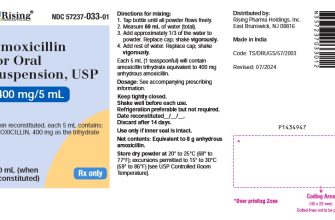Dealing with seasonal allergies? Consider Benadryl (diphenhydramine) – a readily available antihistamine offering quick relief from sneezing, itchy eyes, and runny nose. Its effectiveness stems from blocking histamine, a chemical your body releases during allergic reactions.
Benadryl comes in various forms: tablets, capsules, liquid, and even cream. Choose the form that best suits your needs and preferences. For example, the liquid formulation might be easier for children to take. Remember to always follow the dosage instructions printed on the packaging, tailoring the amount to your age and weight.
While Benadryl provides fast relief, be aware of potential side effects like drowsiness. This sedative effect can impact your ability to drive or operate machinery. Plan accordingly, avoiding activities requiring alertness after taking Benadryl. For some, dry mouth or constipation may also occur. If you experience any concerning side effects, contact your doctor or pharmacist immediately.
Benadryl is generally safe for short-term use, but long-term use isn’t recommended. For persistent allergy symptoms, consult your doctor. They can recommend a long-term allergy management plan, which may include different medications or allergy immunotherapy. Don’t hesitate to discuss your options and find the best solution for your specific situation.
Benadryl for Seasonal Allergies: Effective Relief or Unnecessary Risk?
Benadryl, containing diphenhydramine, provides quick allergy symptom relief. However, its sedative effects can significantly impair daily activities. Consider this trade-off carefully.
Fast-acting relief: Benadryl’s speed is its primary advantage. It quickly combats sneezing, itching, and runny nose. This makes it ideal for immediate symptom control during acute allergy flare-ups.
Drowsiness is a major drawback: Diphenhydramine’s sedative properties are potent. Driving, operating machinery, or other demanding tasks become unsafe after taking Benadryl. Many users report significant daytime sleepiness.
Alternatives exist: Non-drowsy antihistamines like cetirizine (Zyrtec) or fexofenadine (Allegra) offer similar allergy relief without the sedation. These are better choices for individuals needing alertness during the day. Consult your doctor or pharmacist to determine the best option for your specific needs.
Long-term use considerations: Prolonged Benadryl use can lead to tolerance, requiring increased dosages for the same effect. Discuss long-term allergy management strategies with your physician.
Side effects: Beyond drowsiness, dry mouth, blurred vision, and constipation are possible side effects. These should be considered when deciding whether Benadryl is the right choice.
Conclusion: Benadryl offers rapid allergy relief but carries a significant risk of drowsiness. Weigh its benefits against the potential for impaired function. Non-drowsy antihistamines provide a safer alternative for many individuals.
Understanding Benadryl’s Effects on Seasonal Allergy Symptoms
Benadryl, containing diphenhydramine, directly counteracts allergy symptoms by blocking histamine, a chemical your body releases during an allergic reaction. This action provides relief from several common allergy symptoms.
Relief from Key Symptoms
- Sneezing: Benadryl reduces the frequency of sneezes by suppressing histamine’s effects on your nasal passages.
- Runny Nose: It helps to dry up nasal secretions by reducing the production of mucus.
- Itchy, Watery Eyes: Benadryl lessens itching and reduces the amount of tear production.
- Itchy Nose, Throat, and Skin: The antihistamine effect tackles itching sensations across affected areas.
The onset of relief typically occurs within 30-60 minutes of taking the recommended dose, providing noticeable symptom reduction for several hours. However, the duration of effects varies depending on individual metabolism and the dosage.
Important Considerations
- Drowsiness: Benadryl is known for causing drowsiness. Avoid driving or operating machinery after taking it.
- Dry Mouth: This is a common side effect. Sip water frequently to alleviate dryness.
- Interactions: Inform your doctor about all medications you are taking, as Benadryl can interact with other drugs.
- Dosage: Always follow the recommended dosage on the product label or as directed by your doctor or pharmacist.
- Long-term Use: Consult your doctor for advice if you need to use Benadryl for extended periods. Long-term use may not be advisable.
Alternative Approaches
For milder allergy symptoms, consider exploring non-drowsy antihistamines or other allergy management strategies such as nasal sprays or eye drops. Your doctor can help you determine the best course of action for your individual needs.
Potential Side Effects and Cautions When Using Benadryl for Seasonal Allergies
Benadryl, while effective for many, can cause drowsiness. Avoid driving or operating machinery after taking it.
Dry mouth is a common side effect; sip water frequently.
Constipation can occur; increase fiber and water intake.
Blurred vision is possible; avoid tasks requiring sharp vision.
Some individuals experience dizziness; proceed with caution, especially when standing up quickly.
Allergic reactions, though rare, can happen. Stop use and seek medical attention if you experience hives, swelling, or difficulty breathing.
Benadryl interacts with certain medications. Check with your doctor or pharmacist before combining it with other drugs, especially sedatives or alcohol.
Use the lowest effective dose. Don’t exceed the recommended dosage on the label.
Children require smaller doses; always follow pediatric dosage instructions carefully.
Long-term use should be discussed with a doctor; there are alternative allergy treatments.
If symptoms persist or worsen, consult your healthcare provider. They can explore alternative treatments better suited to your needs.










